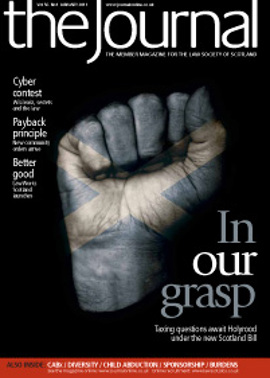An issue that will not die

As widely predicted, Margo MacDonald’s End of Life Assistance Bill failed, with a large majority of MSPs voting against. The vote might be seen to be out of step with the view of Scottish society in general, recent polls having indicated that 70-75% would support voluntary euthanasia.
The Bill Committee did not recommend the general principles of the bill to the Scottish Parliament. Many of the problems identified by the committee arose because of difficulties of interpretation or definition. Among other things, it concluded that:
- making a case for the bill on the grounds of “dignity” was problematic, as different interpretations of what it means to die “with dignity” are impossible to reconcile;
- in relation to the argument for the bill on the grounds of individual “autonomy”, there was a strong view that individual choice has to be considered within the context of society as a whole.
Other difficulties arose in relation to the interpretation of “intolerable” and “terminal illness”.
The committee’s difficulty with the interpretation of “dignity” misses the point. It is the individual’s own concept of their personal dignity which is surely of importance here, not that which we as a society seek to impose. The subjective view of dignity surely underpins the concept of a living will (more properly referred to in Scotland as an advance medical directive). In a living will, the individual specifies in advance, while they retain capacity, the circumstances in which they do not wish treatment to keep them alive, at a time when they are unable personally to communicate their wishes. That is surely a clear statement of the individual’s own concept of dignity.
Objective concepts of dignity in this field simply confuse issues. First, it has been recognised for many years both in Scotland and in England that capacity is not wisdom or intelligence – it is understanding. In particular, capacity still exists even where the decision taken by an individual (which must be regarded as wholly subjective) would be regarded by others as wrong or even foolish.
The concept of dignity and the individual’s own perception thereof was considered by the House of Lords in the case of Debbie Purdy, whose arguments based on infringement of her human rights had been rejected by the Court of Appeal. In the view of all five Law Lords, it did indeed amount to a breach of her human rights not to allow her to end her life with respect and dignity. The Lords criticised the DPP’s refusal to advise on when prosecution might be brought. In their view, the law interfered with Ms Purdy’s right to respect for her private life, as the way she determined to spend her closing moments was part of the act of living. It would appear that they took into account her own subjective view of dignity, not the objective societal view applied by the Court of Appeal.
As for “autonomy”, it is submitted that in very personal matters of this nature, autonomy is entitled to “trump” societal interest. That right of autonomy in its various guises is surely the whole point of the European Convention on Human Rights. Debbie Purdy’s right to autonomy was clearly recognised by the House of Lords.
So far as interpretation of “terminal illness” is concerned, I doubt that most lay individuals would follow the legislators’ difficulty here. Life assurance offices appear to have no difficulty in understanding, or defining “terminal illness”, particularly when it comes to amortising a policy.
As for “intolerable”, I have to make it clear that I did not support that aspect of Margo MacDonald’s bill. Although generally in support of voluntary euthanasia for the terminally ill, I had great difficulty with the Dan James case (the young rugby player who became paralysed through a sporting accident). I would not extend the right being sought by Margo MacDonald to individuals who simply find life intolerable.
I remain unconvinced by arguments that the introduction of a law on voluntary euthanasia would be detrimental to society as a whole and would “push at the boundaries of what is permitted”. Surely that is a normal process in any democratic society. Historically, our legislators have been reactive rather than proactive and once again their refusal of this bill represents the forces of reaction. The decriminalisation of homosexuality and the introduction of registered civil partnerships would have never have happened had not committed campaigners pushed against the boundaries of then applicable social norms. A society grows and develops when its social norms are properly tested.
There is no doubt but that there are difficulties with voluntary euthanasia, with viewpoints being polarised. However, although Margo MacDonald failed in her attempt, this is not a topic which will go away. Already, there have been several unsuccessful attempts in England to introduce legislation. With each attempt the issues are being more fully debated and perhaps focused and refined.
The debate continues.
In this issue
- Prison accommodation for transgender people
- Challenge of the new
- An issue that will not die
- Revolution in the making
- Sasine service
- The welfare imperative
- War on the web
- Payback time
- Diverse means
- Good and better
- Help where it's needed
- Appreciation: Elaine Tyre
- Forum discusses EU contract law
- Law reform update
- Time to take the plunge?
- Ask Ash
- Money talking
- Cut the risk of harm
- Trust rewritten
- Promoting responsibility
- Fathers made relevant
- Tread warily: habitats
- Forum at the frontiers
- Website review
- Book reviews
- Signs of the times






